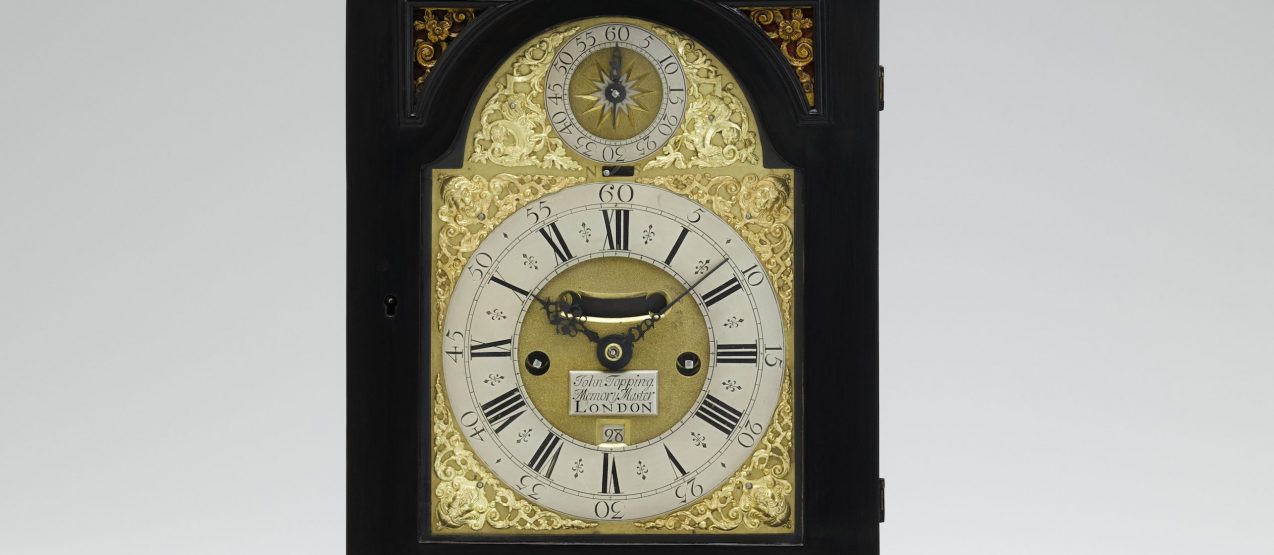In our digital age the majority of us take for granted our ability to easily and readily tell the time, surrounded as we are, by devices displaying accurate time. However, it was not until the late 19th and early 20th century that clocks and watches were commonly available. Fine antique clocks are the result of masterful collaborations between skilled clockmakers, cabinet makers and engravers to produce things of mechanical excellence and great beauty.
Most antique clocks consist of a movement; the clockwork if you like, the wheels and pinions, the escapement, moving parts powered by weights or a spring that turn the hands, a dial; usually marked out with numerals to allow one to tell the time from the position of the hands and a case which houses the movement. All three elements, movement, dial and case need to be original and in the best condition for a clock to be collectable and valuable.
With the advent of the Worshipful Company of Clockmakers in 1631 London became the centre of the clockmaking industry and generally the best quality clocks were made in the capital. London clocks dating from the late 17th century to the 19th century are often considered to be the best in the world. There are, of course, exceptional clocks that were made in Europe and interestingly highly regarded clockmakers working in London were not all English but a mixture of nationalities, from various parts of Europe, including France, Switzerland and the Netherlands.
Clocks by the best and most highly regarded makers are highly valued. There have over recent years been dramatic price increases in clocks by leading makers such as Thomas Tompion and Joseph Knibb but you do not have to spend tens or hundreds of thousands of pounds to acquire a good quality clock. There are many fine and interesting clocks by less well-known makers which provide a good entry point for new collectors and those with an interest in horology but less deep pockets. Clocks by makers like Vulliamy and Dent provide excellent value for money.
Whether you choose to focus on a particular area of horology, 17th century clocks for example, made in what is referred to as the ‘Golden Age’ or longcase clocks with their imposing appearance, or precision clocks with incredible technical features that enable a clock to keep time to within a second a week, or a particular maker or certain style, finding a good dealer should be your first step. A well-established dealer will have the knowledge, restoration expertise and contacts to help you as a collector. Take advice and buy the very best quality clocks you can afford in the most original condition.
A good dealer can tell how original a clock is, can make sure a clock is restored when necessary sensitively and appropriately. They will have built close contacts with other collectors and dealers over the course of their careers and in this way can help you find clocks not necessarily available on the open market. The relationship between a good dealer and collector is a valuable one which often last years, sometimes lifetimes. Such relationships can prevent expensive mistakes on the part of a collector, especially at the beginning of a collection. Many collectors part exchange clocks as their collections grow and change and keep doing so until they purchase their ultimate clock. Collecting clocks is a journey and, as with the best of journeys, one along which many discoveries are made.
Browse for antique clocks:

